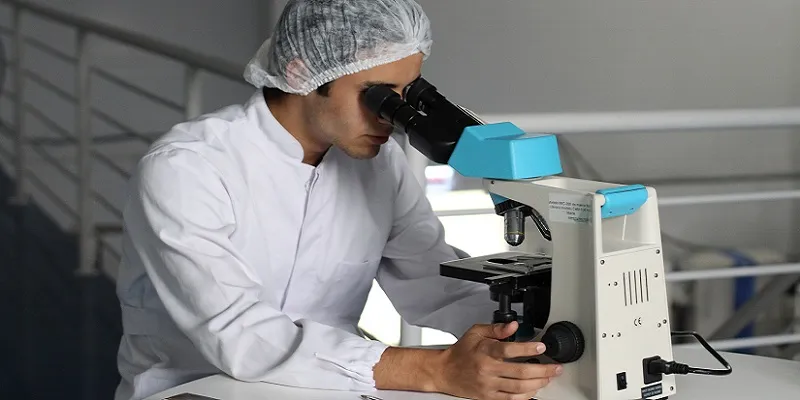Scientists develop tiny robots to treat hard-to-reach body parts
For the diagnosis and treatment of illness in hard-to-reach area of a human body, a swarm of tiny robots have been designed by scientists. The robots, which are the size of a blood cell, can be operated remotely.

The tests conducted involved these robots, measuring a few millionth of a meter long, being guided magnetically to sites inside a rat’s stomach. These robots can smoothly flow within biological fluids like gastric fluid and dilute blood.
Tiny algae with non-harmful and biocompatible magnetic particles were coated on these robots by researchers led by Chinese University of Hong Kong.
With the help of the algae’s natural luminescence, the robots can be detected in tissues close to the surface of skin. Even the robots present in deeper tissues can be tracked with the help of magnetic resource imaging (MRI).
The scientists say that these robots, a few millionths of meter long, can help administering drugs in body parts which are hard to reach. The scientists, who believe that this will help with the treatment of body parts which are otherwise difficult to reach, include those from Universities of Edinburgh and Manchester in the United Kingdom.
There are certain chemical changes which are associated with the onset of each disease. The tiny robots developed can be used to sense these changes in the body parts afflicted with the disease. This makes them a potentially useful probe to diagnose remotely.
The thickness of the manufactured coating can be adjusted to modify the time taken by the robots to function and biodegrade inside the body.
During the conducted test, it was also observed that the compounds released from the algae core during biodegradation selectively attacked the cancer cells and left the healthy cells unharmed. Further research will be done to assess whether these robots have a potential for cancer treatment.
Universities of Edinburgh and Manchester collaborated to perform a study which was published in the Science Journal. According to Eureka Alert, Qi Zhou of the University of Edinburgh's School of Engineering said,
A small-scale robot that can be remotely guided, is easily tracked and harmlessly biodegrades, potentially overcomes many of the challenges faced by minimally invasive therapies. We hope our discoveries will pave the way for the development of useful diagnostics or treatments.
Do you have an interesting story to share? Please write to us at [email protected]. To stay updated with more positive news, please connect with us on Facebook and Twitter.







